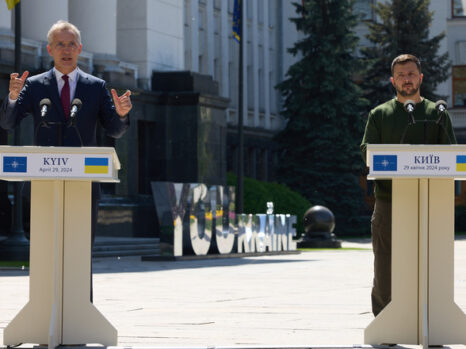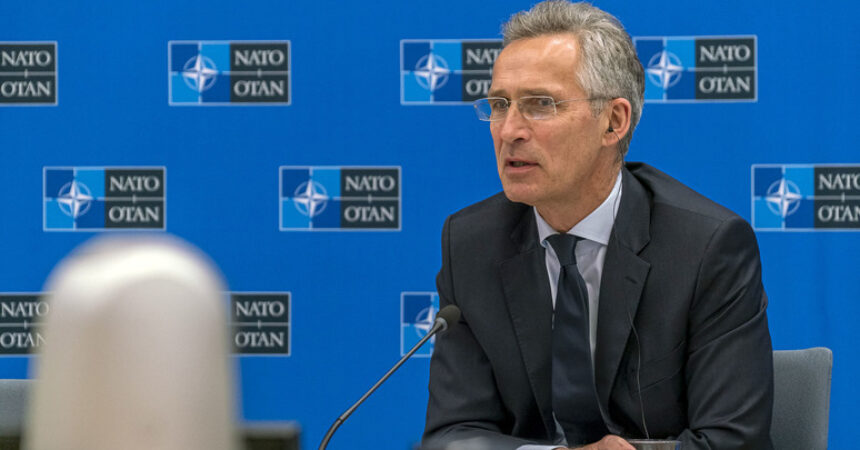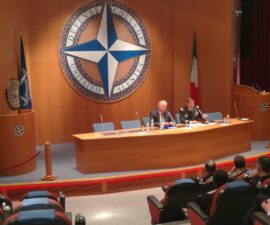VILNIUS. In seguito al meeting di oggi con capi di Stato e di governo della NATO, Jens Stoltenberg, Segretario Generale dell’Alleanza, ha tenuto un incontro con la stampa.

Il Segretario generale della NATO, Jens Stoltenberg
Come di consueto, prima di rispondere alle domande dei giornalisti egli ha rilasciato una breve dichiarazione riassuntiva, il cui testo è di seguito riportato in lingua inglese:
“Good evening. NATO Heads of State and Government took important decisions at a critical moment for our security.
We welcomed Finland as a full-fledged member of the Alliance and we look forward to welcoming Sweden as a full member of the Alliance, based on the agreement I reached last night with President Erdogan and Prime Minister Kristersson.
We also addressed Ukraine.
Since we last met a year ago at our Madrid Summit, NATO Allies have delivered unprecedented support to Ukraine with more ammunition, more modern equipment, and more training to the Ukrainian forces.
Today, Allies have agreed a package of three elements to bring Ukraine closer to NATO.
First, a new multi-year assistance programme for Ukraine to enable the transition from Soviet-era to NATO standards, training and doctrines, to help rebuild Ukraine’s security and defence sector and to cover critical needs like fuel, demining equipment, and medical supplies.
Second, a new NATO-Ukraine Council. A forum for crisis consultations and decision-making where we will meet as equals and I look forward to having the inaugural meeting of the Council tomorrow with President Zelenskyy.
Third, we reaffirmed that Ukraine will become a member of NATO and agreed to remove the requirement for a Membership Action Plan. This will change Ukraine’s membership path from a two-step process to a one-step process.
We also made it clear that we will issue an invitation for Ukraine to join NATO when Allies agree and conditions are met.
This is a strong package for Ukraine and a clear path towards its membership in NATO.
Allies have also approved the most comprehensive defence plans since the end of the Cold War. These are designed to counter the two main threats we face: Russia and terrorism.
Under our new plans, NATO aims to have 300,000 troops at high readiness, including substantial air and naval power.
Robust deterrence and defence requires a robust industrial base.
So leaders endorsed a new Defence Production Action Plan. This will accelerate joint procurement, boost interoperability and generate investment and production capacity.
To do all this, we need to invest more in defence.
Our latest estimates show that defence expenditure by European Allies and Canada will increase by 8.3% in 2023. This is the biggest increase in decades. Since 2014, they will have invested an extra 450 billion US dollars in defence. Eleven Allies now reach or exceed the 2% benchmark and we expect this number will rise substantially next year.
Today, Allies made an enduring commitment to invest at least 2% of Gross Domestic Product annually in defence.
And to do more urgently to meet their commitments.
NATO leaders also addressed China.
China is not our adversary, and we should continue to engage, but Beijing’s increasing assertiveness affects our security.
China is increasingly challenging the rules-based international order, refusing to condemn Russia’s war against Ukraine, threatening Taiwan and carrying out a substantial military build-up.
China’s nuclear modernisation is unprecedented in speed and scale and being carried out with no transparency. Allies agreed to continue working together to protect against China’s coercive behaviour.
And tomorrow, we will meet the leaders of Australia, Japan, New Zealand and South Korea, as well as the European Union, because we are stronger and safer when we stand together”.
© RIPRODUZIONE RISERVATA














